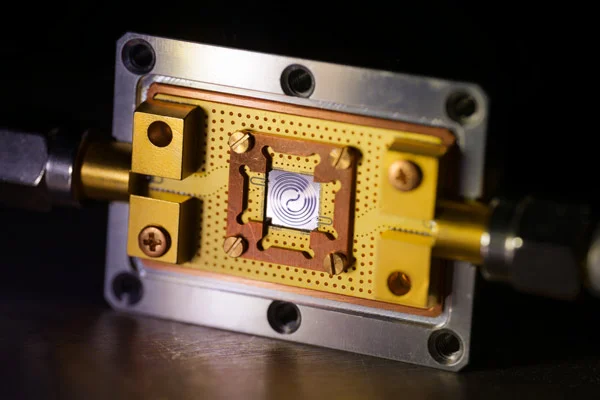Insider Brief
- A University of Oxford-led study has found that in quantum timekeeping, the act of measurement produces far more entropy than the clock mechanism itself, reshaping how scientists understand energy costs in quantum devices.
- Researchers demonstrated that reading a quantum clock can consume up to a billion times more energy than running it, revealing that measurement — not clockwork — dominates the thermodynamic cost of keeping time at the quantum scale.
- The findings suggest that observation itself gives time its forward direction and that future efforts should focus on developing more energy-efficient measurement methods rather than more sophisticated quantum oscillators.
- Photo by Donald Wu on Unsplash
PRESS RELEASE — A study led by the University of Oxford has identified a surprising source of entropy in quantum timekeeping – the act of measurement itself. In a study published today (14 Nov) in Physical Review Letters, scientists demonstrate that the energy cost of reading a quantum clock far outweighs the cost of running it, with implications for the design of future quantum technologies.
Clocks, whether pendulums or atomic oscillators, rely on irreversible processes to mark the passage of time. At the quantum scale, where such processes are weak or nearly absent, timekeeping becomes much more challenging. For future quantum devices that reply on precise timekeeping- such as sensors and navigation systems – it is critical that their internal clocks are energy efficient. But up to now, the thermodynamics of quantum clocks has been a mystery.
In this new study, the researchers asked what is the real thermodynamic cost of keeping time at the quantum scale, and how much of that cost comes from the act of measurement itself?

To do this, they constructed a microscopic clock using single electrons hopping between two nanoscale regions (known as a double quantum dot), with each jump acting like a ‘tick’ of the clock. To detect these ticks, the researchers used two methods; one that measured tiny electric currents, and another that used radio waves to sense changes in the system. In both cases, the sensors convert quantum signals (electron jumps) into classical data that we can record: a quantum-to-classical transition.
The researchers calculated the entropy (amount of energy dissipated) by both the quantum clockwork (i.e., the double quantum dot) and the measurement apparatus. Their results revealed that the energy required to read a quantum clock (i.e., to turn its tiny signals into something we can record) is up to a billion times greater than the energy used by the clock itself. This overturns the assumption that the cost of measurement in quantum physics can be ignored. It also highlights a surprising insight: the very act of observation is what gives time its direction, by making it irreversible.
This flips a common assumption – that more efficient clocks need better quantum systems. Instead, research should focus on smarter, more energy-efficient ways to measure the ticks.
Lead author Professor Natalia Ares (Department of Engineering Science, University of Oxford) said: “Quantum clocks running at the smallest scales were expected to lower the energy cost of timekeeping, but our new experiment reveals a surprising twist. Instead, in quantum clocks the quantum ticks far exceed that of the clockwork itself.”
However, according to the researchers this imbalance could be a feature, not a flaw. The extra measurement energy can give more information about the clock’s behaviour: not just a tick count, but a detailed record of every small change. This opens up new ways for achieving highly precise clocks more efficiently.
Co-author Vivek Wadhia (PhD student, Department of Engineering Science) said: “Our results suggest that the entropy produced by the amplification and measurement of a clock’s ticks, which has often been ignored in the literature, is the most important and fundamental thermodynamic cost of timekeeping at the quantum scale. The next step is to understand the principles governing efficiency in nanoscale devices so that we can design autonomous devices that compute and keep time far more efficiently, as nature does.”
Co-author Florian Meier (PhD student, Technische Universität Wien) said: “Beyond quantum clocks, the research touches on deep questions in physics, including why time flows in one direction. By showing that it is the act of measuring – not just the ticking itself – that gives time its forward direction, these new findings draw a powerful connection between the physics of energy and the science of information.”
The study also involved researchers from TU Wien and Trinity College Dublin.















